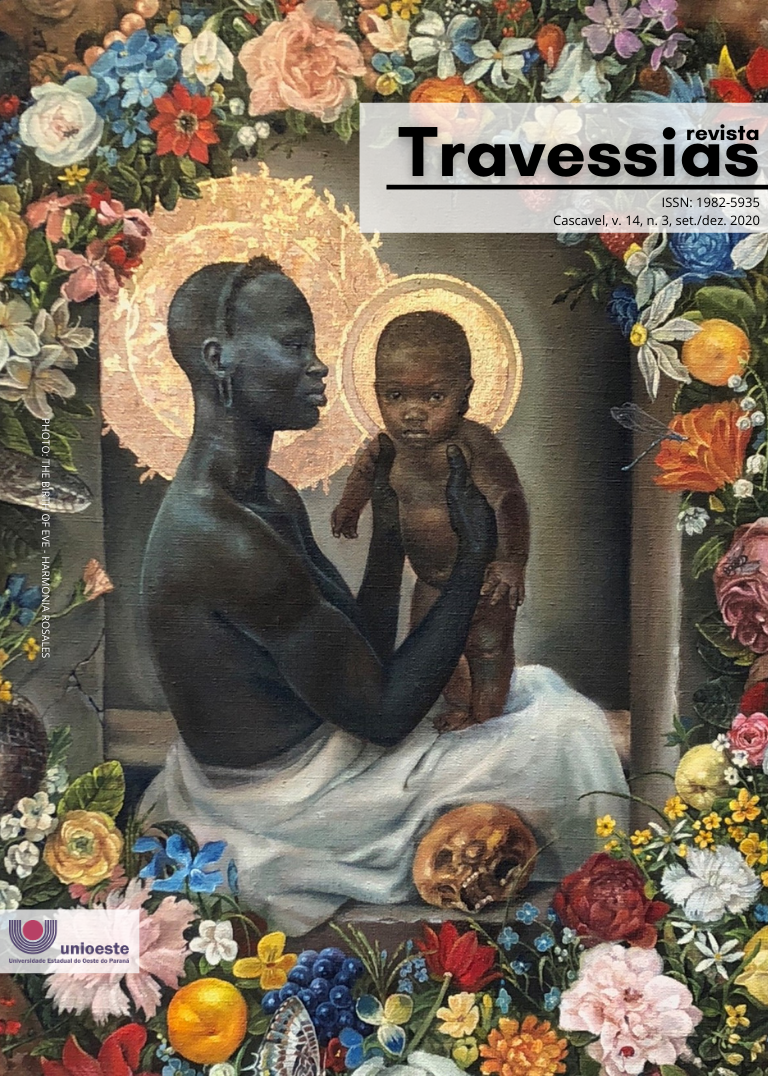Mulher invisível: ausência de sertanejas na historiografia brasileira tradicional
DOI:
https://doi.org/10.48075/rt.v14i3.25118Palavras-chave:
Mulheres, Historiografia, Sertanejas.Resumo
Esse texto versa sobre a ausência ou pouca notoriedade de mulheres na historiografia tradicional brasileira. Ao mesmo tempo, traz discussões acerca de algumas inserções importantes de mulheres na nova historiografia, a partir da década de 1970. Há também a exposição da ausência de sertanejas entre as produções dos historiadores clássicos e, ao mesmo tempo, faz-se uma apresentação de pesquisas recentes sobre as sertanejas de diversas partes do Nordeste, buscando contemplar personagens outrora invisibilizadas e negligenciadas pela história tradicional do Brasil. A discussão teórica é amparada em estudos da crítica historiográfica, história, história das mulheres e estudos culturais. O formato de apresentação do texto é um itinerário, que começa com a apresentação do assunto e segue, não de modo linear, mas com idas e vindas no acervo de teóricos, comparando-os e apresentando reflexões em torno de suas produções para, em seguida, fazer uma inserção em produções de autores que trazem sertanejas como protagonistas de suas pesquisas, reiterando a importância de se documentar sobre outras histórias de diferentes personagens. A intenção é denunciar a parcialidade da historiografia tradicional brasileira e, ao mesmo tempo, oferecer possibilidades de contar novas histórias a partir de outros pontos de vista, como o de sertanejas. Para tanto, foi realizada pesquisa bibliográfica, voltada para a presença/ausência de mulheres em geral e de sertanejas nas páginas de autores da historiografia brasileira. Por fim, é reforçada a importância de se evidenciar e valorizar novos olhares sobre a historiografia, que favoreçam a diversidade de personagens.
Downloads
Referências
DEL PRIORE, Mary (org.); PINSKY, Carla Bassanezi (coord. Textos). História das mulheres no Brasil. 10. ed. 6ª reimpressão. São Paulo: Contexto, 2018.
FREYRE, Gilberto. Casa-grande & senzala: formação da família brasileira sob o regime da economia patriarcal. Apres. Fernando Henrique Cardoso. 51 ed. rev. São Paulo: Global, 2006.
HOLANDA, Sérgio Buarque de. Raízes do Brasil. 26. ed. São Paulo: Companhia das Letras, 1995.
LIMA, Lílian Martins de. Os ingleses e a história do Brasil (1809-1821). Revista Territórios & Fronteiras, Cuiabá, vol. 7, n. 2, jul./dez., 2014.
MALERBA, Jurandir. Notas à Margem: A crítica historiográfica no Brasil dos anos 1990. Textos de História. V. 10, n. ½, 2002.
NEGREIROS, Adriana. Maria Bonita: sexo, violência e mulheres no cangaço. 1. ed. Rio de Janeiro: Objetiva, 2018.
PERROT, Michelle. Minha história das mulheres. 2. ed. 5ª reimpressão. São Paulo: Contexto, 2017.
PINSKY, Carla Bassanezi; PEDRO, Joana Maria (orgs.). Nova história das mulheres no Brasil. 1. ed. 1ª reimpressão. São Paulo: Contexto, 2013.
PRADO JR., Caio. Formação do Brasil contemporâneo: colônia. 1. ed. São Paulo: Companhia das Letras, 2011.
RAGO, Margareth. A “nova” historiografia brasileira. Anos 90, Porto Alegre, n. 11, julho de 1999.
RIBEIRO, Djamila. O que é lugar de fala?. Belo Horizonte: Letramento: Justificando, 2017. Col. Feminismos Plurais.
RIBEIRO. Marcos Profeta. Mulheres e poder no Alto Sertão da Bahia: a escrita epistolar de Celsina Teixeira Ladeia (1901 A 1927). São Paulo: Alameda, 2012.
ROCHA, Ivânia Nunes Machado Rocha. Páginas do sertão: leitura e imaginação no universo de sertanejas. Dissertação (Mestrado em Crítica Cultural). Departamento de Educação – Campus II, Universidade do Estado da Bahia (UNEB). Alagoinhas, p. 166, 2016. Disponível em: http://www.poscritica.uneb.br/wp-content/uploads/2017/06/TEXTO_FINAL_DISSERTA%C3%87%C3%83O_IV%C3%82NIA.doc – Acesso em: 4 dez. 2018.
SILVA, Tânia Maria Gomes da. Trajetória da historiografia das mulheres no Brasil. POLITEIA: Hist. E Soc., Vitória da Conquista, vol. 8, n. 1, p. 223-231, 2008.
Downloads
Publicado
Como Citar
Edição
Seção
Licença
Aviso de Direito Autoral Creative Commons
Política para Periódicos de Acesso Livre
Autores que publicam nesta revista concordam com os seguintes termos:
1. Autores mantêm os direitos autorais e concedem à revista o direito de primeira publicação, com o trabalho simultaneamente licenciado sob a Licença Creative Commons Attribution que permite o compartilhamento do trabalho com reconhecimento da autoria e publicação inicial nesta revista.
2. Autores têm autorização para assumir contratos adicionais separadamente, para distribuição não-exclusiva da versão do trabalho publicada nesta revista (ex.: publicar em repositório institucional ou como capítulo de livro), com reconhecimento de autoria e publicação inicial nesta revista.
3. Autores têm permissão e são estimulados a publicar e distribuir seu trabalho online (ex.: em repositórios institucionais ou na sua página pessoal) a qualquer ponto antes ou durante o processo editorial, já que isso pode gerar alterações produtivas, bem como aumentar o impacto e a citação do trabalho publicado (Veja O Efeito do Acesso Livre).
Licença Creative Commons
Esta obra está licenciada com uma Licença Creative Commons Atribuição-NãoComercial-CompartilhaIgual 4.0 Internacional, o que permite compartilhar, copiar, distribuir, exibir, reproduzir, a totalidade ou partes desde que não tenha objetivo comercial e sejam citados os autores e a fonte.



